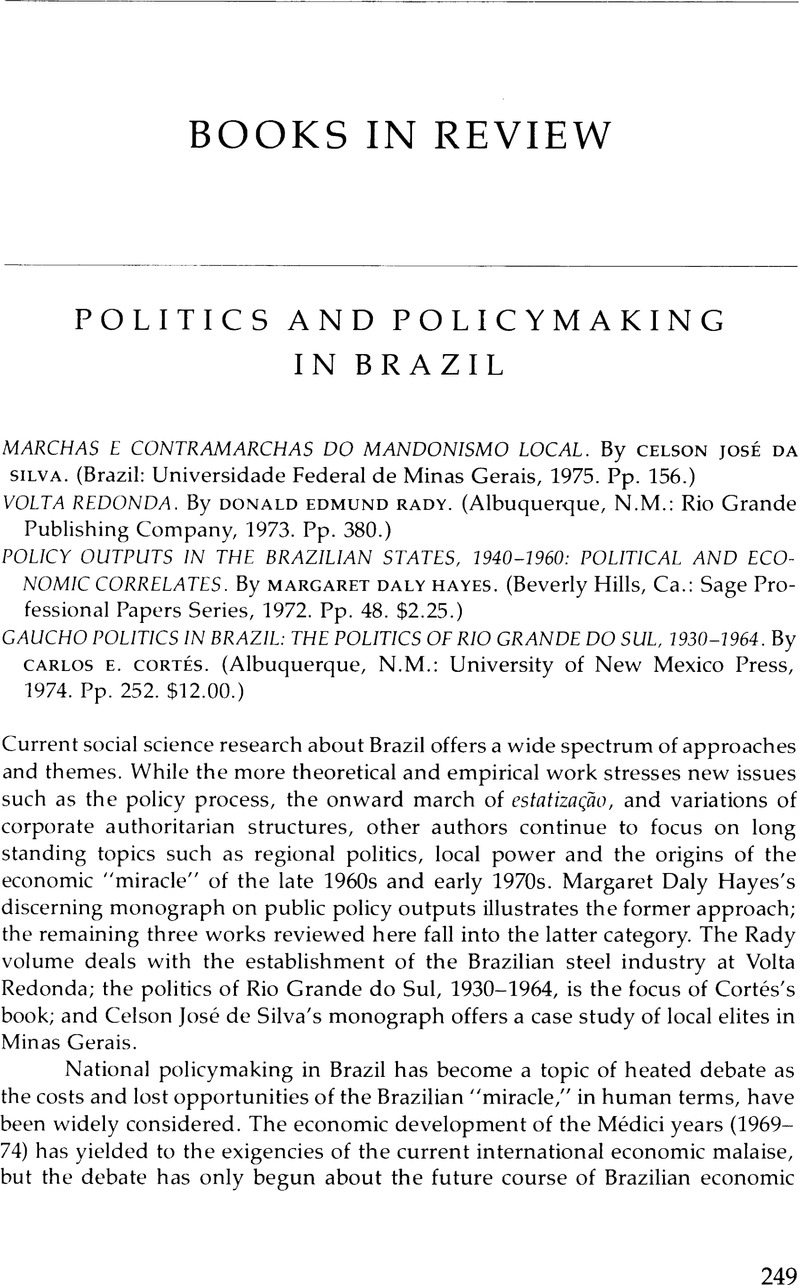No CrossRef data available.
Article contents
Politics and Policymaking in Brazil
Review products
Published online by Cambridge University Press: 24 October 2022
Abstract

- Type
- Books in Review
- Information
- Copyright
- Copyright © 1977 by the University of Texas Press
References
Notes
1. For a recent set of essays that deal with Brazil's emerging international role, both economically and politically, see Riordan Roett, editor, Brazil in the Seventies (Washington, D.C.: The American Enterprise Institute, 1976).
2. A recent critical review of the Brazilian literature on the role of the state and sources of power is that of Francisco Iglesias, “Revisão de Raymundo Faoro,” Cadernos do Departamento de Ciência Política, no. 3 (Março de 1976), pp. 123-42.
3. Stanley E. Hilton, Brazil and the Great Powers, 1930-1939: The Politics of the Trade Rivalry, (Austin and London: University of Texas Press, 1975).
4. Werner Baer, The Development of the Brazilian Steel Industry (Nashville: Vanderbilt University Press, 1969).
5. Ibid., p. 104
6. The Northeast situation is studied in Riordan Roett, The Politics of Foreign Aid in the Brazilian Northeast (Nashville: Vanderbilt University Press, 1972) and Joseph A. Page, The Revolution That Never Was: Northeast Brazil, 1955-1964 (New York: Grossman, 1972).
7. Joseph L. Love, Rio Grande do Sul and Brazilian Regionalism 1882-1930 (Stanford: Stanford University Press, 1971).
8. Werner Baer has made a major contribution in identifying the role of the state. See “The Role of Government Enterprise in Latin America's Industrialization,” in David T. Geithman, editor, Fiscal Policy for Industrialization and Development in Latin America (Gainesville: University of Florida Press, 1974).


